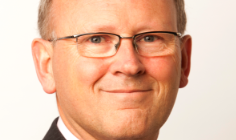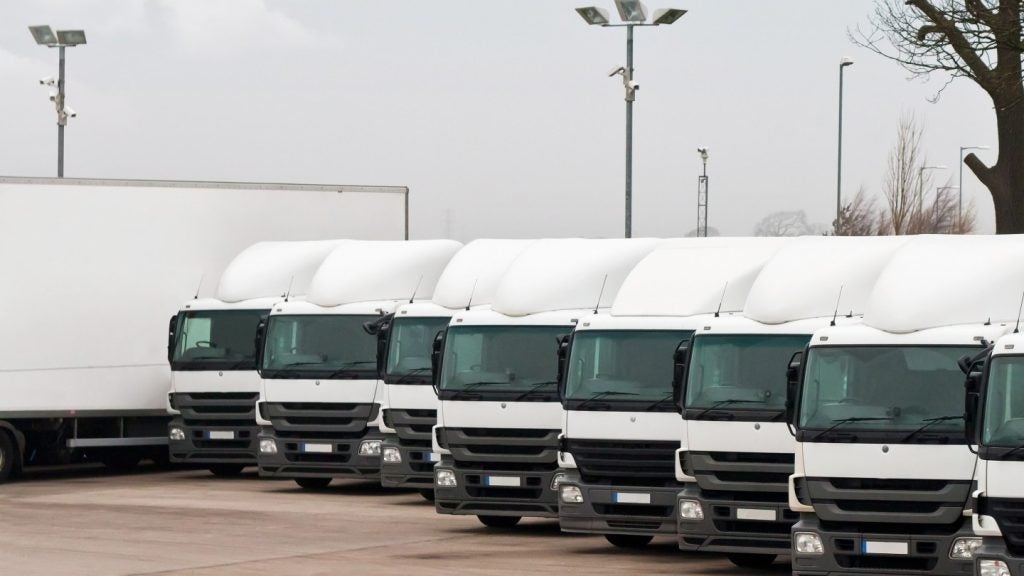
Mike Cobb talks to the co-leader of Volkswagen Financial Services about VW’ s business model and his plans to develop market share
To many UK consumers, finding out that Volkswagen Financial Services (VWFS) is the largest of the manufacturer-backed finance houses might come as a surprise. The reason for this is that the true extent of how many brands are under the Volkswagen Group’s umbrella is often lost on the general public. The company is now the manufacturer of: Bugatti, Bentley, Lamborghini, Porsche, Audi, Volkswagen, SEAT and koda. Not to mention motor bike company Ducati and truck companies, Scania and MAN.
The finance arm of the business is also there to offer finance to every one of those brands. If you want a Bugatti, it’s possible to finance it via VWFS, and a surprising amount of people will do, as we explore on page 16 of this month’s magazine.
With the UK being the second-biggest European market for the company outside its native Germany, being assigned the role of co-managing director of the UK operation is a major achievement. This is exactly what has happened to Albert van der Bergh, who started in the role in July this year.
We meet at the VWFS headquarters in the land of a thousand roundabouts, Milton Keynes. As a Dutch native it’s interesting to hear that van der Bergh appreciates the oddities of the new town in Buckingham-shire, one of which is the 70mph speed limit on so many of the roads connecting the roundabouts which are such a feature of the town.
Having moved over from the Netherlands this summer, he’s made his home just outside the town and commutes to work in one of the manufacturer’s more powerful products, an Audi RS4, a legacy of his predecessor Lisa Stacey, who has returned to Australia with VWFS.
How well do you really know your competitors?
Access the most comprehensive Company Profiles on the market, powered by GlobalData. Save hours of research. Gain competitive edge.

Thank you!
Your download email will arrive shortly
Not ready to buy yet? Download a free sample
We are confident about the unique quality of our Company Profiles. However, we want you to make the most beneficial decision for your business, so we offer a free sample that you can download by submitting the below form
By GlobalDataVan der Bergh may be new to the UK and his current role, but he has a long history with the group.
An accountant by training, and originally an auditor with KPMG, van der Bergh, started his career in motor finance at Pon, a Dutch importer of vehicles and heavy equipment.
He started at the company in 1999 when it was undergoing a period of transition. "When you looked at its balance sheet at that time, it looked more like a finance company than a trading company," says van der Bergh, adding: "It was looking for a partner to take a majority in the finance part of the company and that, in the end, Pons became VWFS."
With the VWFS controlling interest came a promotion for van der Bergh to head the back office function in 2003.
Turning around the fleet
To describe his job as simply managing the accounting and human resourcing functions of the Dutch arm of the group is not giving van der Bergh the credit he deserves.
"I’m not a typical back office guy," he explains. "I’m also quite interested in what’s going on at the dealers side. Quite some years ago I started to develop a vision about how to continue with a fleet business in the Netherlands together with one of my colleagues."
At that time the Dutch fleet leasing industry revolved around individual dealerships, all operating independently. "So I started with the idea that we had to start bringing all these leasing companies together to create one strong captive," continues van der Bergh. This was no easy task he told Motor Finance, as 20 years previously Pon had told the dealers that it was important they run their businesses separately – and there he was now telling them the opposite. The hard work paid off though, with the VW leasing business now the fourth-largest fleet services provider in the Netherlands, behind such giants as LeasePlan, in just four years since the project launched.
This is the sort of proven success that led to VWFS member of the management board Frank Fiedler picking van der Bergh to take the role in the UK.
To van der Bergh personally this means a lot. "It’s a huge challenge", he says, even though the numbers of staff involved is not hugely different, there’s much else that’s different. Staffing levels in the Netherlands is about 500, he says, with the UK at about 700 employees with plans to raise that to about 800 over the coming year. "But the business model is completely different," continues van der Bergh "Over here, the focus was, until now, mainly retail, and over here it’s about 80% retail and 20% wholesale. In in the Netherlands it was completely different. It was 20% retail and 80% wholesale. So that’s a complete change."
One of the areas that needs to improve therefore is the penetration rate that the fleet business achieves in the future, he believes. At present the penetration rate across retail and wholesale is about 45%. Considering that according to VWFS’s most recent records the retail side of the business is achieving about 78% penetration rates, the wholesale side of the business is underachieving.
Team player
Van der Bergh is quick to refute that his job is to change that single-handedly, even if he admits that change it must, saying: "We really want to develop that part for the same reason that we did in the Netherlands."
"But I’m not responsible for the leasing business over here because that’s my colleague Graham [Wheeler, co-managing director at VWFS UK]," he explains.
"We have a split between front and back office, but of course at the business side we work together very closely. I do have some experience of that business and Graham and I will work closely together."
One of the areas that strikes van der Bergh as being worth replicating is the model in the Netherlands where they take a different approach to some types of deals and that they must be "taking part in tenderings; we are very successful in the Netherlands. We won the Police tender for example; that was a very big tender. We also won the defence tender. Not for the tanks of course," he jokes.
With the police deal, the contract was not to supply the vehicles, as in the UK these are bought outright by the police, but to operate a fleet service and maintenance for the entirety of the National Police Corps.
This is the sort of deal that van der Bergh sees as a better place for the company to place its resources right now. "If you want to improve from 70 or 80 to 90% penetration it will take a big effort, and cost-wise it might be a better idea to invest that money in the fleet for the near future."
Efficiency
If van der Bergh was brought into the UK to pass on his expertise in improving the VW Leasing offering, it has not been a one-way street. He feels that already he’s learning from what he’s seeing from the UK team.
"One of the things I’ve seen over here is that the efficiency of the organisation is one of highest that I’ve seen within the whole of VW Group. So contracts to staff ratio, these kinds of things, are very high." It’s something he hopes he can take with him from the UK when his time here comes to an end.
Despite this efficiency a growing business has its challenges acknowledges van der Bergh.
Some of those are more in keeping with his previous role in the back office. "One of the biggest challenges that we have over here is getting the right people into this company," he says. "As unemployment is so low in this area – we have between 1 and 2 % unemploy-ment – getting the right people over here is one of the challenges.
"We’ve grown so rapidly in the past few years that one of the challenges is to keep the company and also the systems processes and people up with the change. And that they are still able to follow the quick and rapid growth of this company. I’m pretty confident in that one, but that’s one of the challenges."
Another challenge that he touches on is that of systems, especially with the FCA regulations requiring more reports and a change to certain processes. "Our systems can keep up, such as in March for example. We did more than 30,000 contracts and that puts a lot of pressure on the organisation," says van der Bergh, but notes: "We are changing our IT organisation too, to prepare for further growth.
"We have a five-year plan, as every company does of course, and we have some growth aspirations. If we reach the milestone of 10bn (£7.8) [in debt issuance] that’s not when we sit back and say ‘that’s nice’; we’ll realise that target and want to continue the growth. Specifically we want to grow in the fleet area as already mentioned."
The 10bn debt issuance programme that van der Bergh mentions is part of the European business programme to expand its lending platforms through accessing funding in the capital markets.
Part of this programme will include the UK entity, something van der Bergh will be closely involved with. "This month we will roll out one new asset-based securitisation programme in the UK, with another next month. So we’ll see from that moment how much appetite there is from investors. I’m not scared we won’t receive the money. So I think from that point of view we are seen as one of the strongest captives in the UK."
VWFS and the FCA
No interview at this time can pass without bringing up the Financial Conduct Authority and its effect on the industry. Coming from the Netherlands to this new regulatory environment hasn’t been a culture shock for van der Bergh, however. He says:"We have a kind of FCA in the Netherlands, and also consumer protection is a very, very big topic."
For example the sale of some add-on products is banned there, and another area where the Netherlands has been ahead of the UK regulator is in regard to the suitability of products for individual consumers.
A more contentious issue that has already come up in the Netherlands is commission. "Supplying bonuses for selling consumer finance products, is already quite difficult in the Netherlands," says van der Bergh. "It’s quite a challenge to convince our dealers, here for example, if we have to reduce commissions. They don’t see that as a clever thing – for our side to earn more money and to take more money from them. But that’s not the case."
That challenge aside, the push for VWFS is now to position all its current processes in the right place for the FCA rules. Van der Bergh says: "It’s a big project to look at all the processes to ensure we are FCA-compliant with all the regulations – as we certainly want to be. Because the worst thing that could happen is that when we are audited, the FCA comes to the conclusion that we are not compliant. That would be a very big risk to our reputation."
With a full authorisation timetabled for the second quarter of 2015, the pressure is on for the largest car finance company to be ready with this project in time.
In order to do this, the VWFS team has organised a panel on which sits a number of the company’s departments. This creates an atmosphere where everybody is involved in the project, says the company.
In keeping with many of the larger captives, the introduction of the FCA rules is seen positively by van der Bergh. As he puts it: "It’s good they are in place, because we want to earn our money in an honest and decent way.
"Of course every finance company says that, but it’s also true. And Volkswagen is a down to earth company. We don’t go for quick money or anything like that. That’s not our habit. Our reputation is the biggest asset we have.
"And we also have a responsibility to our staff over here to keep them employed and give them a decent salary, so our future is more important than short-term profits."
Brands
Most captives are financiers of a number of brands. RCI Banque covers Renault, Dacia and Nissan for example. VWFS is, however, the umbrella for eight quite separate car brands, with quite different customer bases.
Dealing with this has required a approach that encompasses the involvement of more than just the financial services business from within the VW Group.
"We have brand managers," says van der Bergh. "We copied our business to the brand business and so when you look at Audi we have our brand managers and their regional sales directors. They work closely together and develop each brand."
Those brand managers also work more closely with the sales directors by being based in the Group headquarters and therefore physically closer to them.
What this allows is the team to cater products to the type of customer base that each brand attracts. Bentley for example, van der Bergh says, has more customers looking to own their cars at the end of the contract term. This is similar with the other high-end brands. With the volume brands, such as SEAT and VW cars the use of PCP "is through the roof".
Other areas the company has used to stamp the brand onto the financial offering is to create teams within the call centre who are trained to deal with customers in a way that differentiates someone who buys a Lamborghini from a SEAT purchaser.
It’s a model that works, and as van der Bergh says: "If VW buys more brands we will follow that idea."
Truck business
One brand that has not so far fitted into the VWFS UK way of doing things has been the truck manufacturer MAN. At present its financial services business operates separately, as a legacy of the independence of MAN Finance International until January of this year. Van der Bergh says however: "In the near future there will also be a kind of cooperation with MAN in our truck business."
Cooperation is about as far as van der Bergh is willing to go in terms of how far he sees the integration of the truck company’s financial business.
"To include MAN is not up to me," he says. "That’s up to the shareholders in Germany, and I’m not sure if we will really include MAN. We included MAN Financial Services in the Dutch financial services company, but there could be a different cooperation model from country to country,
"But we will look at least for cooperation models. That’s the intention at least from Volkswagen to increase the synergies of our various brands. But I expect that we will become closer to MAN within the next three years."
The buyout earlier this year of another truck maker, Scania, is something van der Bergh also hopes will lead to greater co-operation between its finance business and his own, but this may take longer he believes, due to the novelty of the relationship. Maybe not even within the three years that he’s been told he’ll be staying in the UK.
One of the plans that will begin to take shape in that three-year minimum is something that’s occupying the minds of many of the motor finance industry’s leaders – car-sharing – or as van der Bergh and VWFS see it, a mobility plan for owners.
"That’s one of the things we are already developed quite a lot on the Netherlands," explains van der Bergh.
Part of this project was the purchase of car-sharing company Green Wheels, which now operates in Germany and the Netherlands, much like Zip-Car and Hertz 24/7 do in the UK.
"I really believe in those kinds of models," van der Bergh continues. "What’s key of course is that these kinds of companies have parking spaces in London."
The reason he sees car-sharing as a future are subtly different from Andy Gruber of Alphera Financial Services.
Gruber believes that consumers no longer demand an ownership model. Van der Bergh is more inclined to see the model as being advanced by the pressure of increasing congestion.
Also different is how the scheme would work within the VW Group. "How it’s worked until now is that these car-sharing companies like Green Wheels buy their own cars and put them in certain places in big cities. That’s how I see it being developed over here and I see that we will be involved in financing these cars."
Euromobile
The car-swapping model is not being ruled out, however. Using the VW-owned Euromobile rental company an owner could approach the dealers involved and swap their VW Golf hatchback in the UK for an Audi A4 saloon in Southern Spain. At the moment, however, the Euromobile model is not ideal for this type of project. "That’s an idea to develop, because these connections between the countries are not really there at the moment. It’s locally organised at the moment.
Car-sharing is still in its infancy, but by taking over other companies capable of extending the rental possibilities of VW brands, the VWFS solution looks to be more advanced than many of its competitors.
Van der Bergh jokes about this model when asked about his hopes for the future of VWFS.
"Well It’s not important what I hope," he says. "I hope that the business would continue as it is and there wouldn’t be car-sharing. I think in the end it would be better, as I think in the end it would be better for our shareholders as of course initially we are selling cars.
"But I think that it might be the case that in the future we might sell fewer cars, but sell more services, so I think that balance might change."
More seriously though he does hope for one thing. "I hope that we realise the predicted growth of this company, but I’m confident that it will happen."







